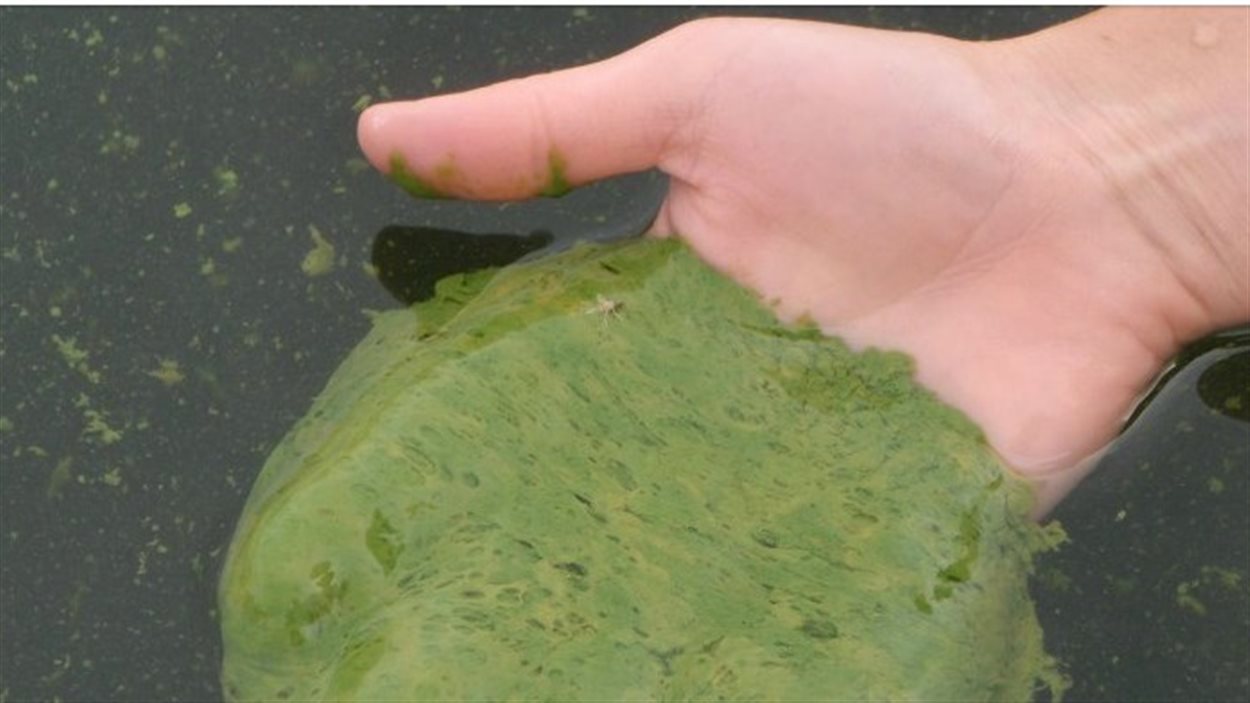Renfrew Public Health is advising people to keep an eye out for toxic algae blooms.
David Tantalo of the Renfrew District Public Health Unit said blue-green algae is rare but can grow in lake water around cottage country. Tantalo says that the algae blooms in hot and dry weather and has increased in frequency because of the changing climate. The algae can cause skin irritation if touched and diarrhea and vomiting if ingested. Tantalo says that at very high levels, the toxin in the algae, microcystin, can cause liver and nervous system damage.
Tantalo says the algae is mustard or green in colour with a pea-soup like texture. He says it smells like cut grass or rotting vegetation, depending on how old it is. He says the algae only grows on open bodies of water like lakes and rivers and has not been reported in enclosed spaces. Tantalo points out that there are several different types of algae that are not toxic. He says so far this summer there has only been one reported instance of green-blue algae in Renfrew County, but the number of reports can change from year to year.
Tantalo says while the risk is low you should still watch out for algae blooms in water. He says anyone who is using lake water for drinking, bathing or recreation should take precautions. He says you should not use algae-tainted water for bathing or showering. He says you should also keep children, pets and even livestock away from water that is home to the algae.
Tantalo says boiling the water can make it worse and says to not use the water to cook with. When eating fish caught from lakes, Tantalo says to be careful and to not consume the kidneys or liver of the animal. Those who draw lake water for their homes and cottages should make sure their treatment systems can remove toxins from the water. If not, Tantalo says to avoid using the water until the algae has dissipated. Tantalo adds that those going to Ontario Parks can drink the water provided by the parks’ water system as it has been treated extensively. He adds, however, that you should not consume or bathe in lake water in the parks if there is algae in it.
Tantalo asks anyone who thinks they have spotted blue-green algae to report it to the Ministry of Environment, Conservation and Parks at 1-800-268-6060. For more information about the algae, go to Public Health’s website.
Written by Trevor Smith-Millar



